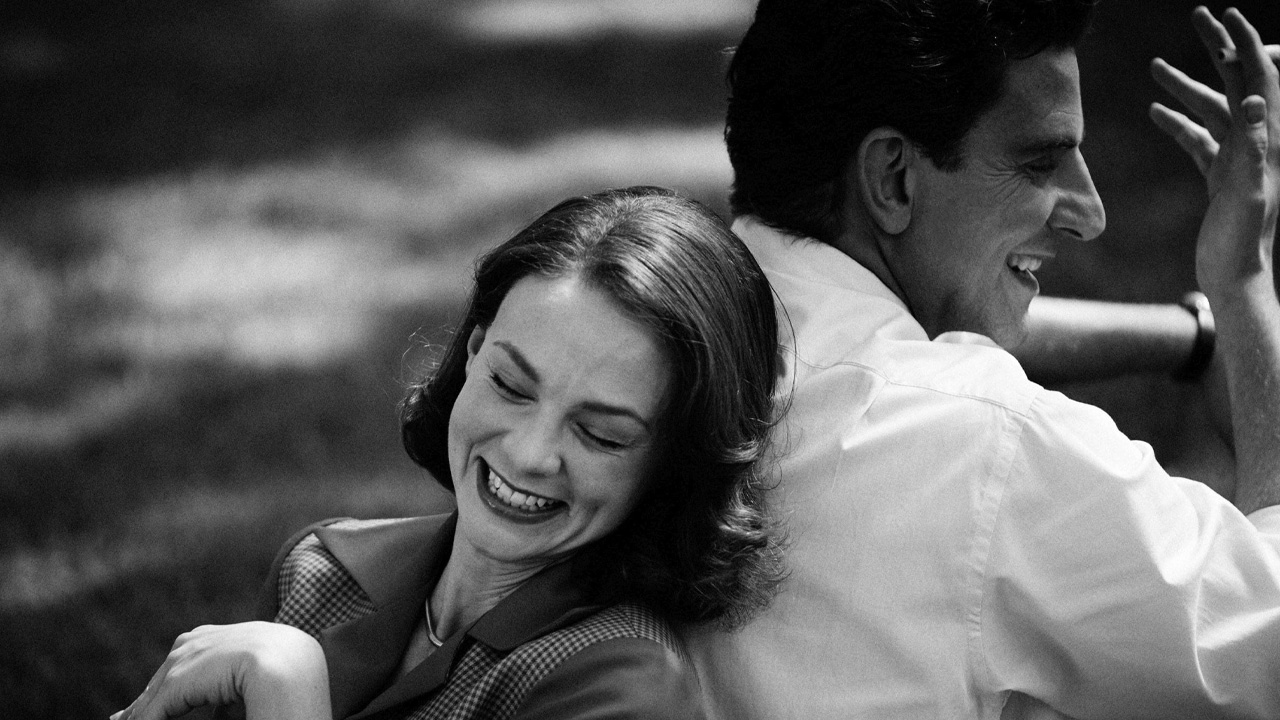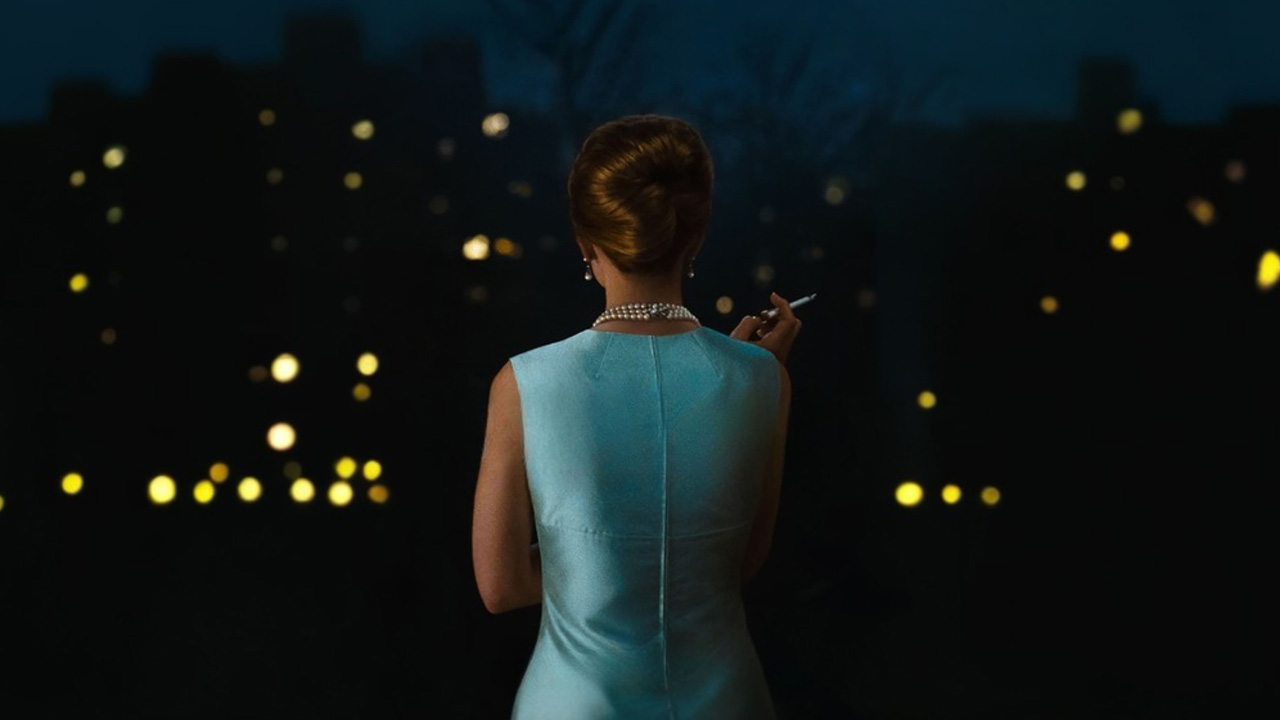Bradley Cooper’s Maestro is moving, carefully crafted – and sometimes frustrating

Bradley Cooper joins Carey Mulligan on-screen for his second directorial feature Maestro, a biographical love story starring Cooper as music legend Leonard Bernstein. Early this year, Rory Doherty was at the Venice Film Festival, where the film premiered, to dive into Cooper’s hugely ambitious work.
Comedian John Mulaney pre-empted Maestro, Bradley Cooper’s follow-up to his Oscar-winning directorial debut A Star is Born, five years ago when he posed the probing and evocative question, “What would Leonard Bernstein do?” He was making fun of the cryptic and baffling sexual advice his father gave to him as a teen, but the question has certainly intrigued, if not haunted, Cooper before cameras rolled on his moving, carefully crafted, and sometimes frustrating version of Bernstein’s booming highs and intimate lows.
It’s a film that, hopefully intentionally, signals not just the biopic’s expressive inadequacies when compared to music, but also the genre’s inability to gain true access into the psychology of its subject. Distance pervades throughout, and even though Maestro is hampered by Cooper insisting on this particular stylistic agenda, the film remains admirable and fascinating for taking such an unwavering path into the iconic queer musician’s strife.
Maestro opens with a quote from its subject: “A work of art does not answer questions, it provokes them; and its essential meaning is in the tension between the contradictory answers.” It applies not just to Bernstein the man, but also Cooper’s directorial style. As becomes clear in the film’s opening act, shot in crisp, high-contrast black-and-white, we will see Bernstein solely in vignette form, coming into scenes after conversations have started and lingering on the edge of them for painful lengths. In wide angles, the camera will resolutely observe, like it’s making a particularly candid behind-the-scenes documentary. We are on the periphery of Bernstein’s life and must be invited in to learn anything deeper than his outward behaviour.
But even this is complicated by the inherently performative nature of the musician. The opening scene, with an older and hyper-prosthetised Cooper, has Bernstein directly address a camera crew about his wife while tinkling on a piano. As a conductor, Bernstein’s heightened movements were raised for everyone to see; as a composer, his innermost creative impulses belonged to him, his piano, and the piece of sheet music he wrote on before they were staged and orchestrated for the world. Bernstein even acknowledges this while being interviewed in the film—a prime example of Maestro’s perceptive but sometimes regrettably blunt dialogue.
Because of insisting on storytelling through distanced, naturalistic vignettes, where the camera often omits a whole other person someone is talking to, Maestro risks not just denying its audience the opportunity to ground themselves in key emotional scenes but also feeling like we are skating through snapshots of the lives of Bernstein and his wife, the Costa Rican-Chilean actress Felicia Montealegre. This criticism feels especially pertinent as the foundations for the marriage’s primary, ever-lasting conflict are introduced: Bernstein’s vibrant queerness was repressed by the enforced heteronormativity of his relationship, his family, and the type of success he wanted to achieve.
If Maestro is made up of snapshots, they are performed with grace and pathos. Cooper confidently portrays all of Bernstein’s overt, heightened affectations: the warm, booming nature of his speech and his restless, dynamic physicality. Does it risk feeling like he’s just mimicking a famous person without tapping into his interiority? Not really—this fictionalised Bernstein always uses their outward persona as a mask to shield their vulnerability, even if the film overplays some moments where his internal distress is too clearly signposted. Mulligan, as always, impresses, but more than anyone else in the film it does feel like a complicated person is being condensed into a biopic archetype—the struggling wife of a famous man.

It’s Cooper’s direction and Matthew Libatique’s cinematography that stand out most boldly. Often, the intentions behind their visual motifs are thunderingly obvious: the night Leonard and Felicia meet, they perform dialogue from one of Felicia’s plays in an empty theatre, and their eyes literally glint looking at each other in the darkness. When they have a terrible row on a Thanksgiving afternoon, man and wife stand on opposite sides of the frame, diametrically opposed with their resentment and tensions laid bare in the space between them. It’s unsubtle, but effective.
Bradley Cooper has clearly set himself an artistic challenge after the crowd-pleasing success of his debut, and despite his filmmaking talent maturing in clear ways, you can’t help but wonder how refined Maestro could be if he had gotten a few less-ambitious projects under his belt beforehand. But often, if we can see the motives and mechanisms behind the construction of a piece of art, we’re inclined to critique it as crude or unsophisticated, as if a film’s construction is as artistic as the gracefulness of the finished product.
Feeling the biopic form stretch and strain in Cooper’s attempt to articulate the totality of Bernstein doesn’t make Maestro any less sophisticated a piece of emotional storytelling—or, if it does, that doesn’t make it a failure. Bernstein dedicated his life to music, and Maestro believes the Hollywood biopic, even when remoulded to accommodate Bernstein’s genius, pales in comparison to musical expression. If Maestro was always destined to have flaws, it’s rewarding to feel Cooper fighting against them.
Originally published on Flicks on September 4, 2023

















